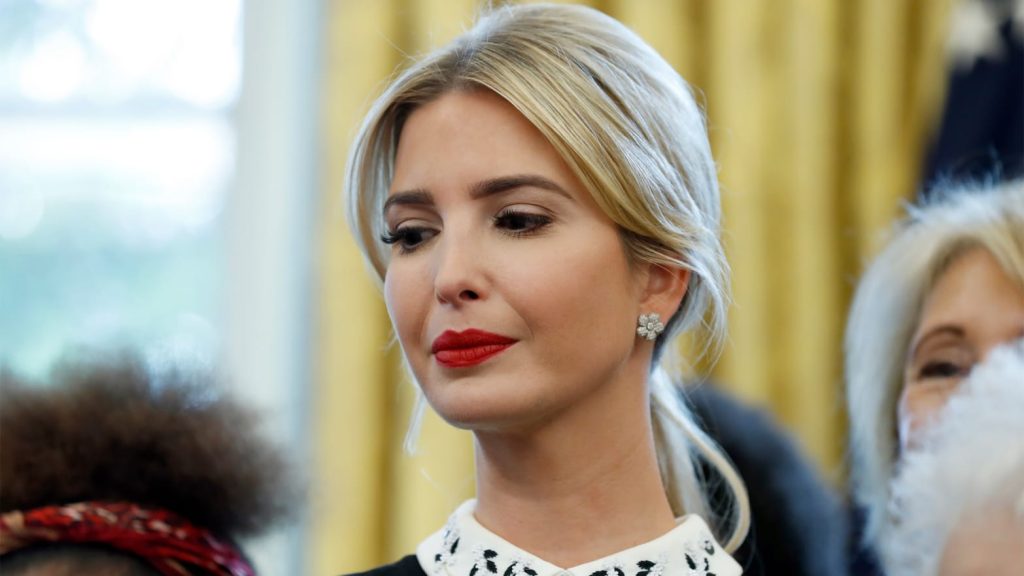
Ivanka Trump is not a name that you would normally associate with suffering or struggles of any kind. After all, she is the daughter of a very wealthy man who is extremely rich in her own right. Money can’t buy happiness, perhaps, but it can usually buy an easy solution to a variety of problems that the less fortunate just have to suffer through.
One surprising exception, though, is postpartum depression. This is a special kind of depression that Trump has suffered from with each of her children, and she has spoken openly about her own struggles and how this has changed her perspective on being a parent. Just what did Ivanka Trump say, and how has postpartum depression changed her life? Keep reading to find out!
How many people suffer from postpartum depression?

While it’s surprising to imagine someone like Ivanka Trump dealing with postpartum depression, the odds are more likely than you might think. According to the National Center for Biotechnology Information, “Around one in seven women can develop postpartum depression.” Typically, the claim has been that one in 10 women suffer from PPD, and this study has revealed that the odds are even worse than we first thought.
Incidentally, postpartum depression is considered very different from the “baby blues.” Many people get temporary bouts of sadness after having a child, but these bouts typically pass very quickly. PPD, meanwhile, is both more intense and lasts longer, and it can significantly affect the way women speak, think, and generally function.
RELATED: All The Ways Ivanka Trump Changed After Leaving The White House
Ivanka Trump opens up about her postpartum depression

Like many wealthy and famous people, Ivanka Trump could have kept her own struggles with postpartum depression a secret. Instead, as reported by ABC, she went into detail about her struggles in an interview with Dr. Oz.
“It was a very challenging, emotional time for me because I felt like I was not living up to my potential as a parent or as an entrepreneur and as an executive,” she said. Ironically enough, she found the physical aspects of childbirth easier than expected, and this is one of the reasons the PPD may have hit her that much more difficult. “I had had such easy pregnancies that in some way the juxtaposition hit me even harder.”
That last bit is a keen reminder that to this day, most people imagine the difficulties associated with being a mother with the difficulties of childbirth itself. But as Ivanka Trump has pointed out, some mothers end up struggling much more after the birthing process due to the raves of PPD.
Ivanka reminds us that this depression is not a sign of weakness

While Ivanka Trump has a very different way of looking at postpartum depression than most mothers, she has some insights that all moms (and all people everywhere, really) could benefit from. As ABC reports, she went on to tell Dr. Oz about the distinction between her normal personality and how postpartum depression was making her think and feel.
“Look, I consider myself a very hard-charging person,” she said. “I’m ambitious, I’m passionate, I’m driven. But this is something that affects parents all over the country.” At first, a cynical read of this is that she’s a bit like Donald Trump: someone who never wastes an opportunity to remind us of how great she is.
However, what Ivanka Trump is really doing here is subtly pointing out that postpartum depression can affect anyone regardless of their levels of ambition, drive, or success. In short, if PPD can hit Ivanka Trump so hard and so consistently (she had it with all three kids), then it can hit all mothers everywhere.
RELATED: 8 Things You Didn’t Know About Ivanka Trump
Honest (and blunt) talk about what it means to be a parent

Another way that Ivanka Trump may be like her famous father is that she likes to call things the way she sees them. That means she can be pretty blunt when discussing topics like parenthood, but she can also be so honest that it’s downright depressing.
For example, one of our favorite Ivanka insights comes from an interview she gave to People. “Being a mother is the most rewarding experience, but also the most wild and stressful.” Any mom can attest to that, and her statement is also like her final word on postpartum depression: despite all the stress it caused, her children made all of the struggles worth it.
How can you treat postpartum depression?

There are really only two ways to treat postpartum depression. As reported by the Mayo Clinic, suffering parents usually benefit from a combination of psychotherapy and medication (most of which consists of antidepressants)
It’s best to think of PPD like any other form of depression. Just as no two cases are exactly alike, no two treatments will work perfectly for any two people. Instead, each person must discover for themselves what they need to do to shake the depression and fully dive into the joys of motherhood.
RELATED: The Unknown Truth Of Ivanka Trump’s Failed Fashion Line
